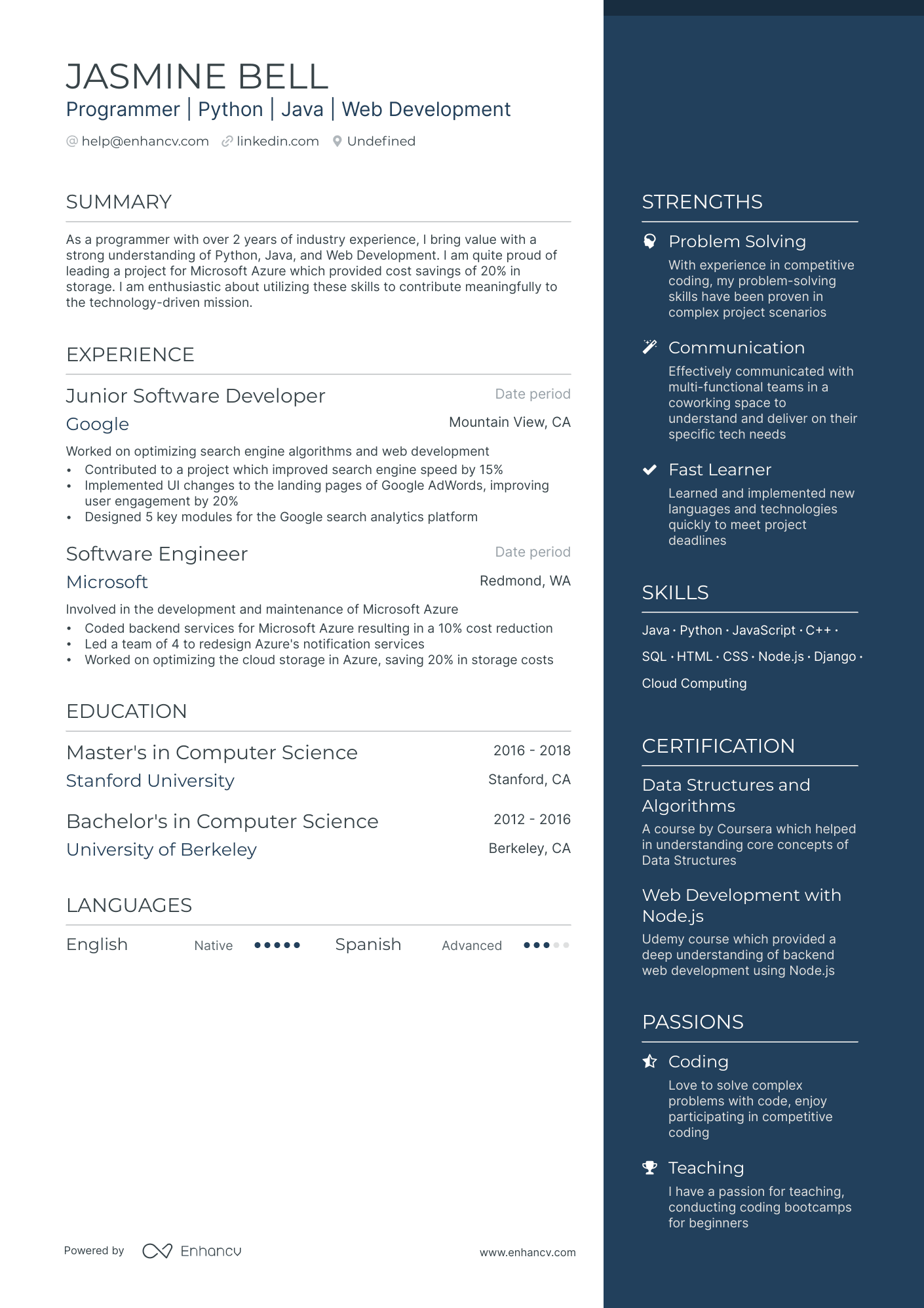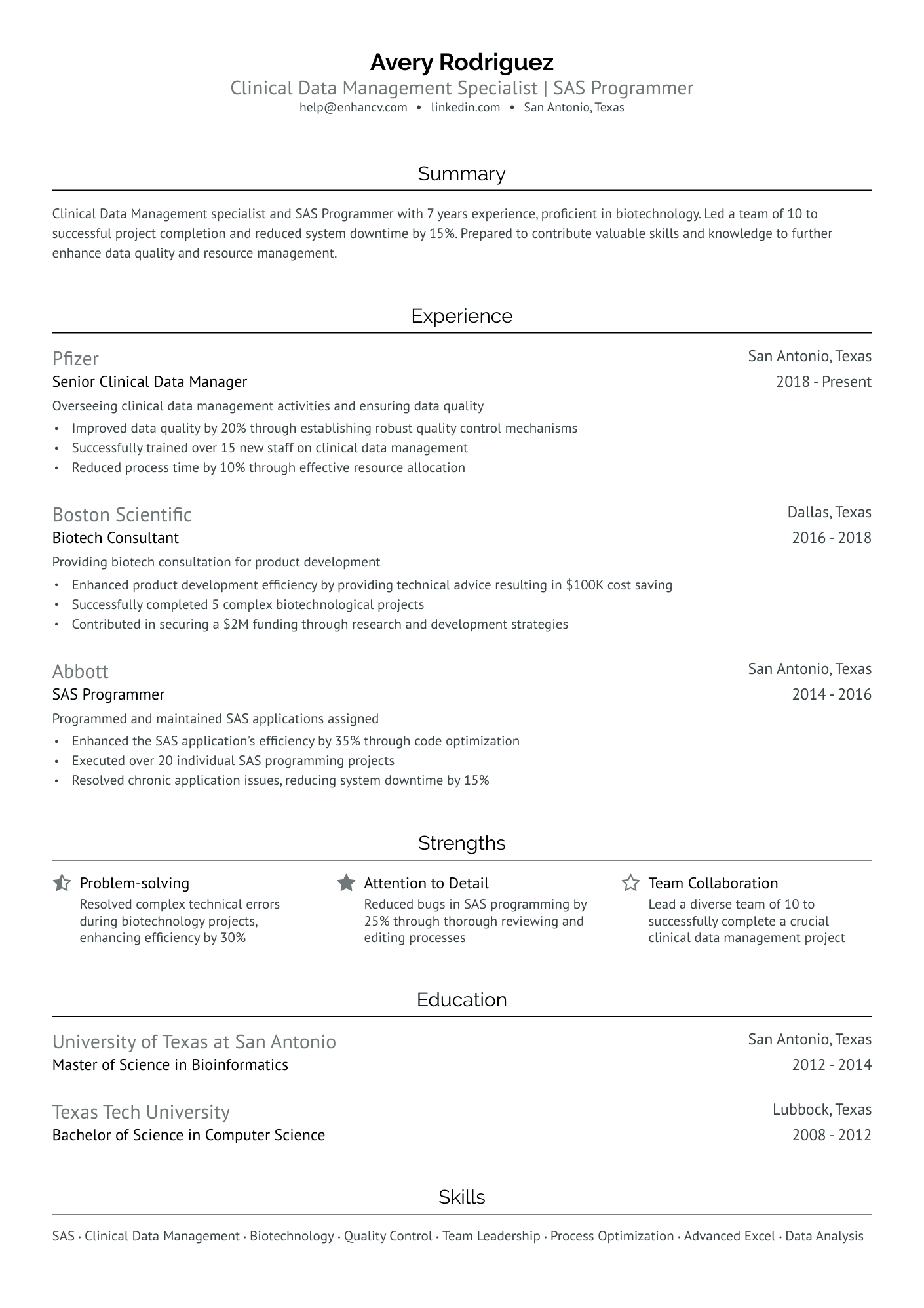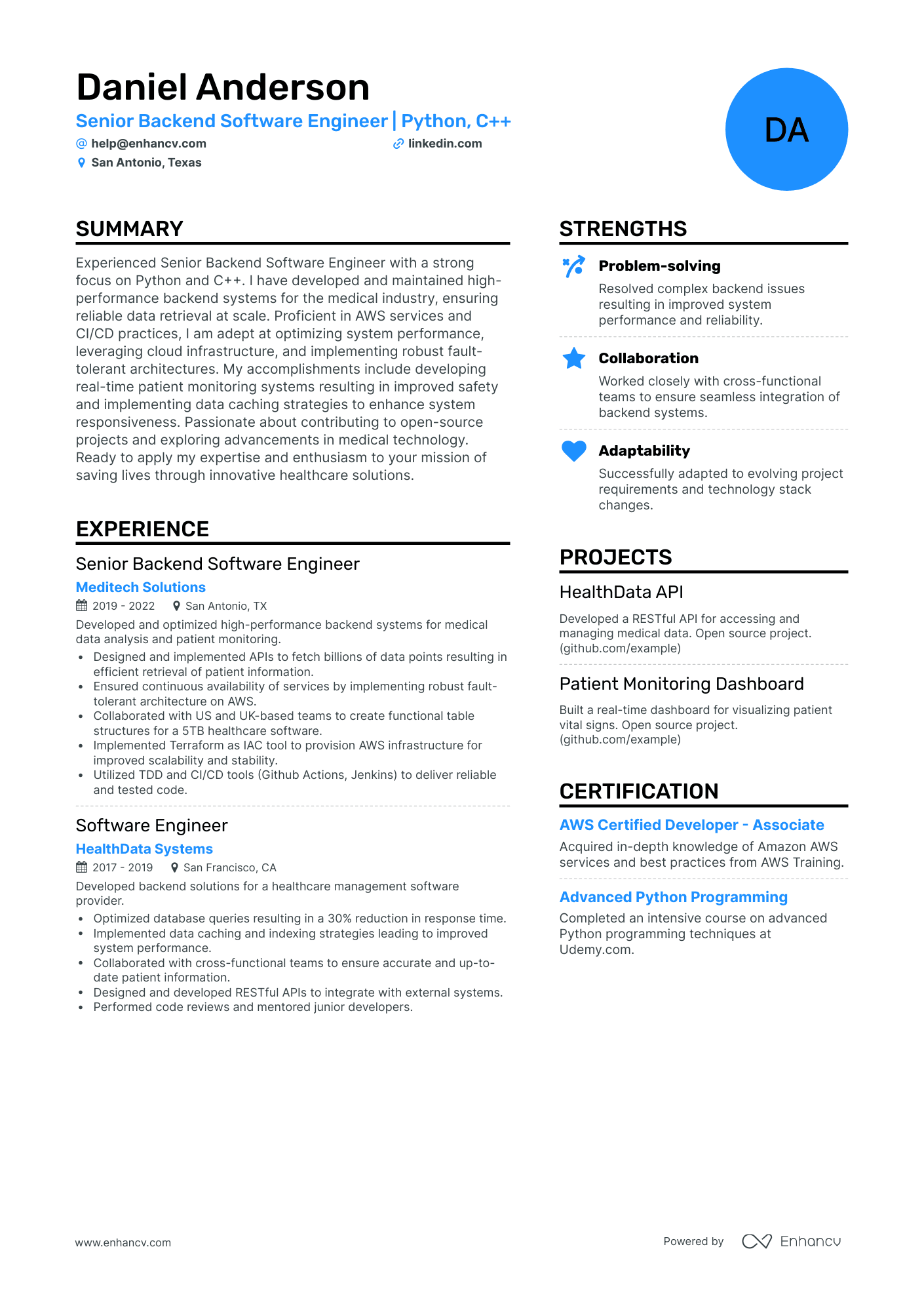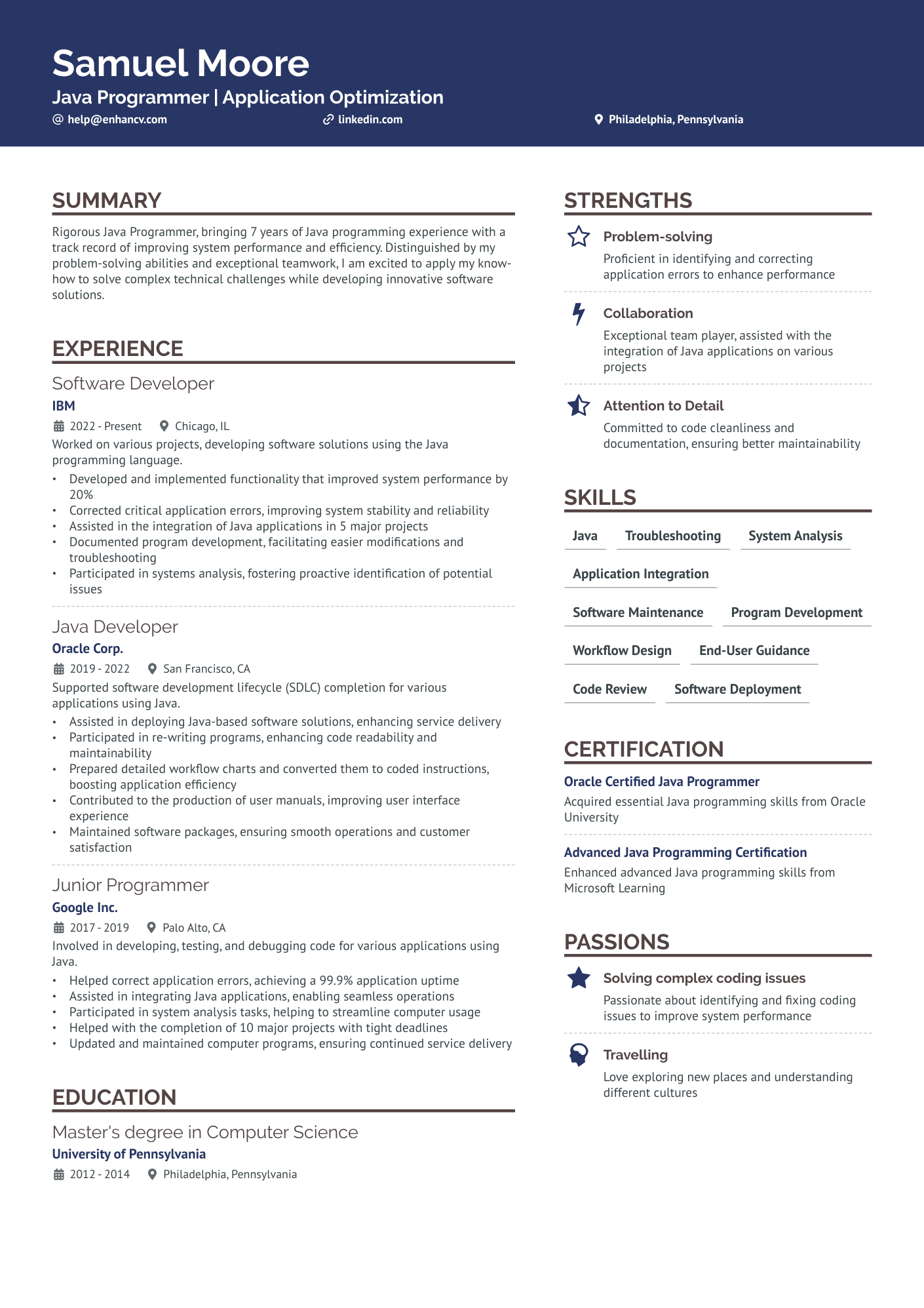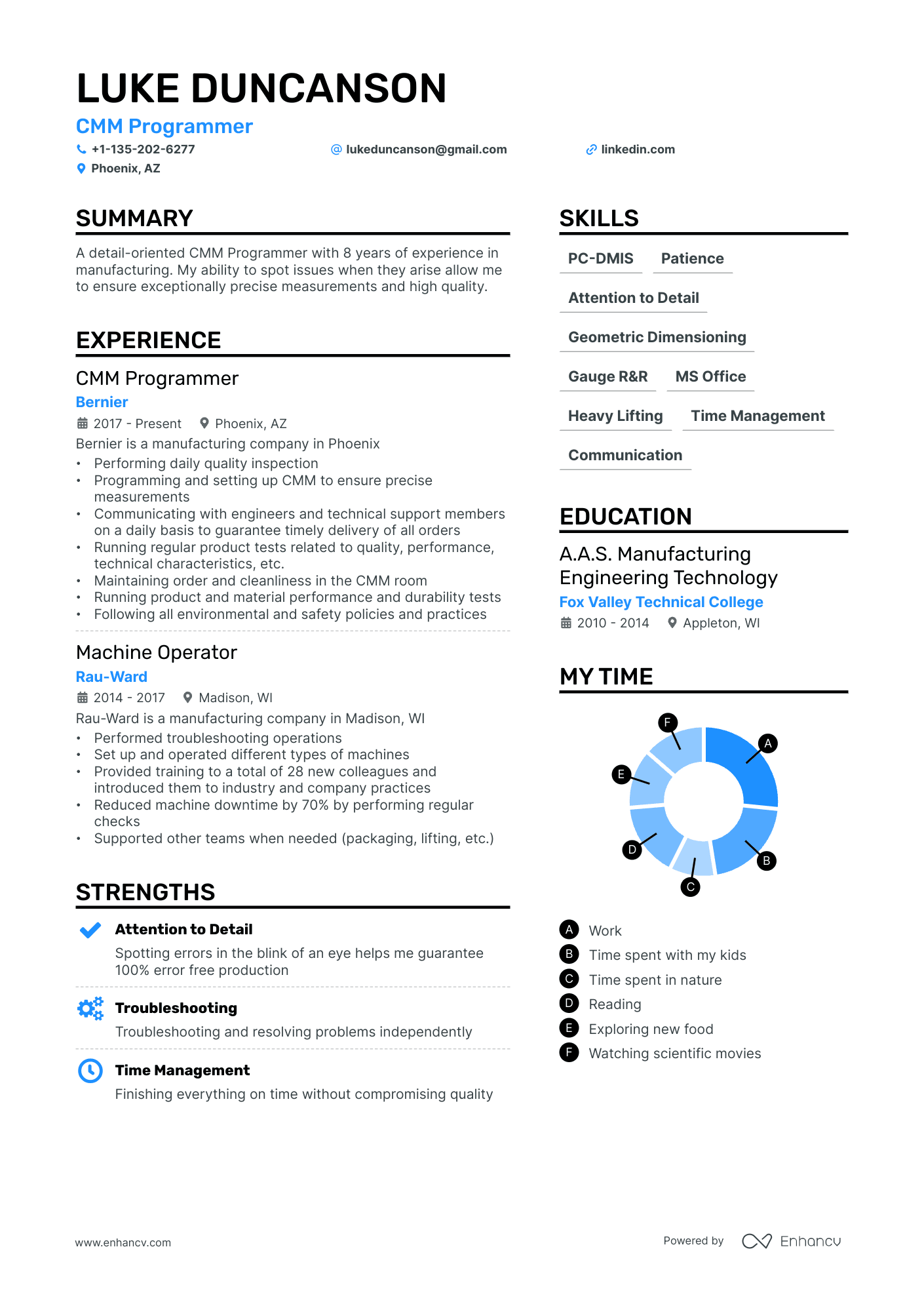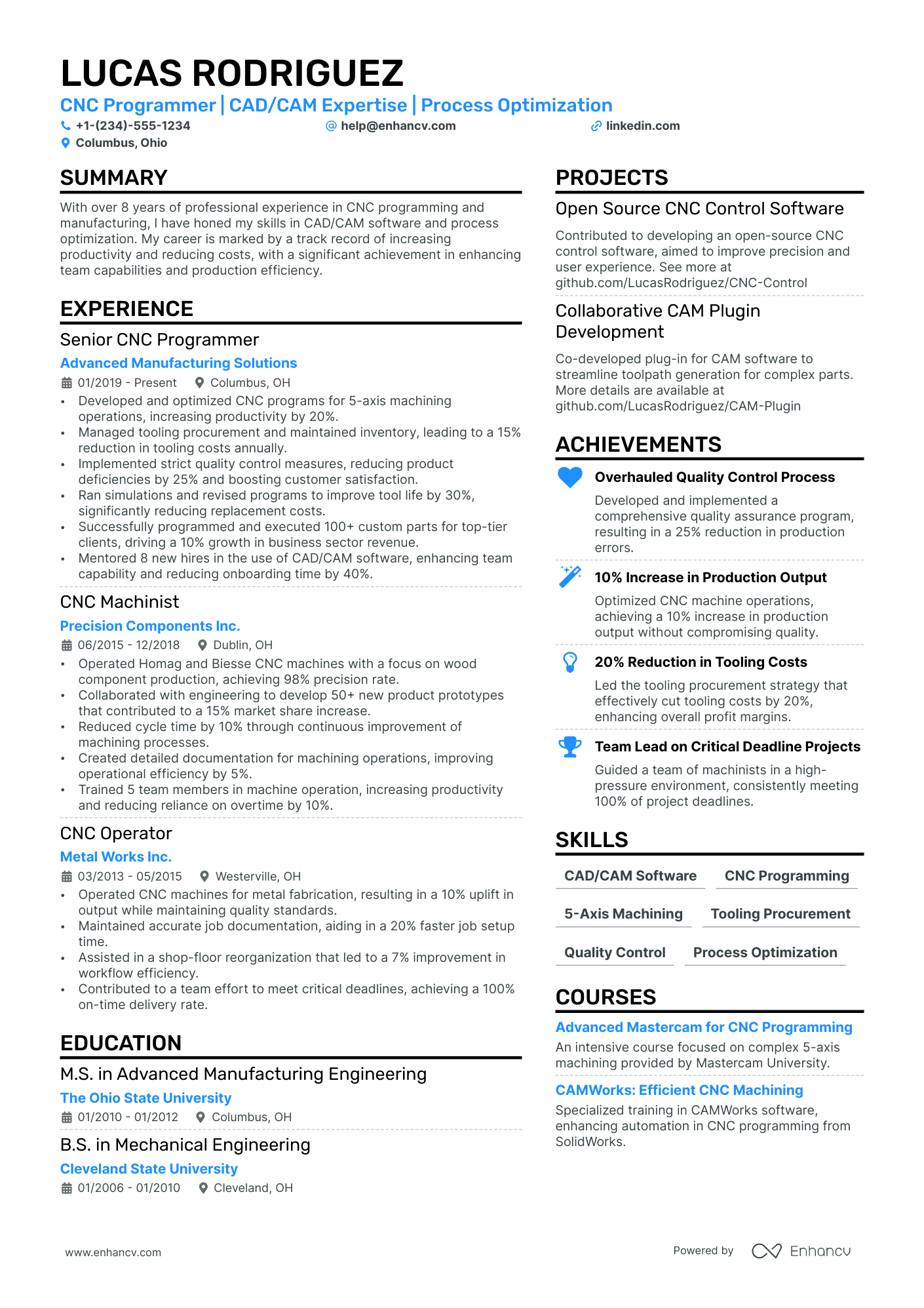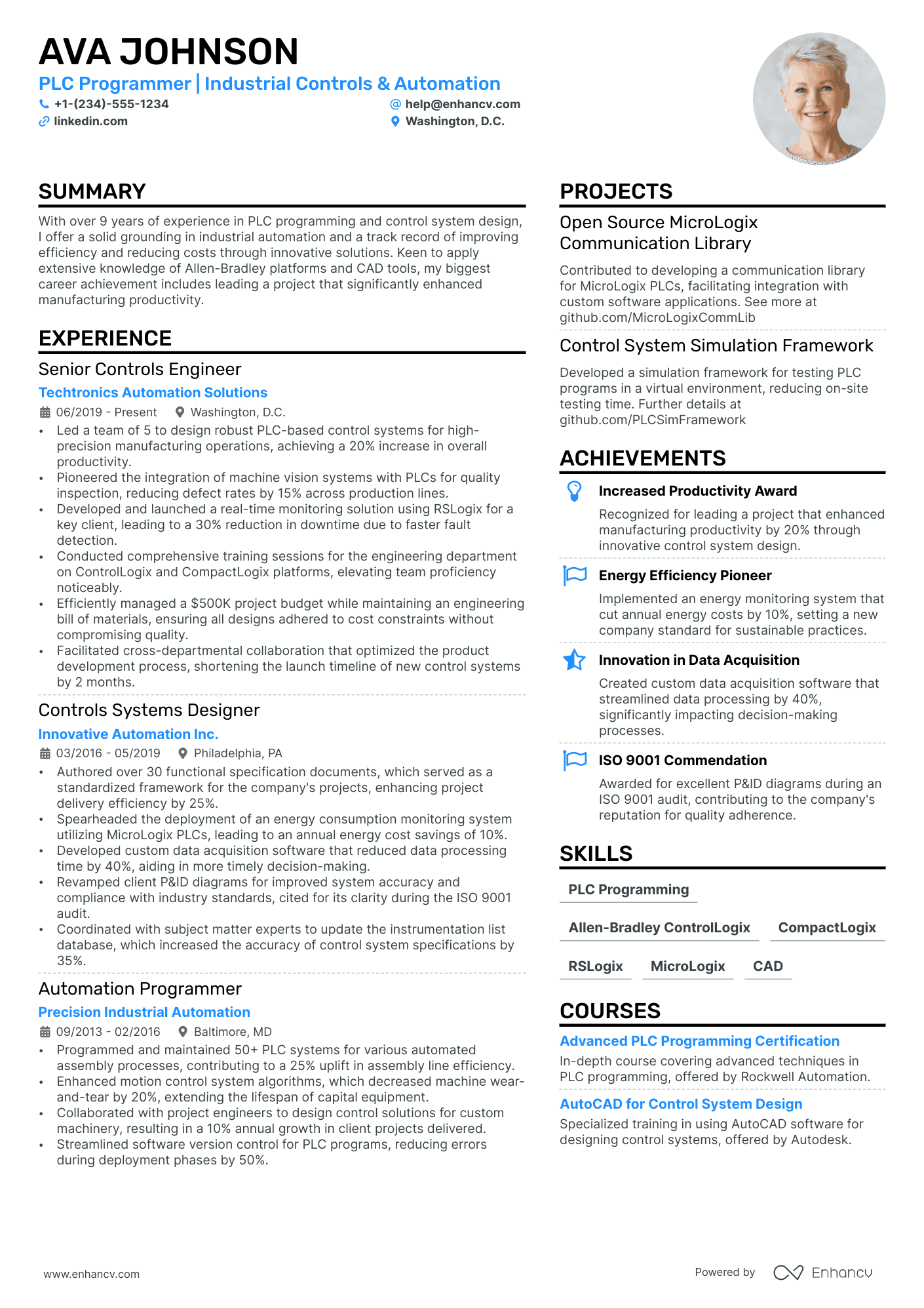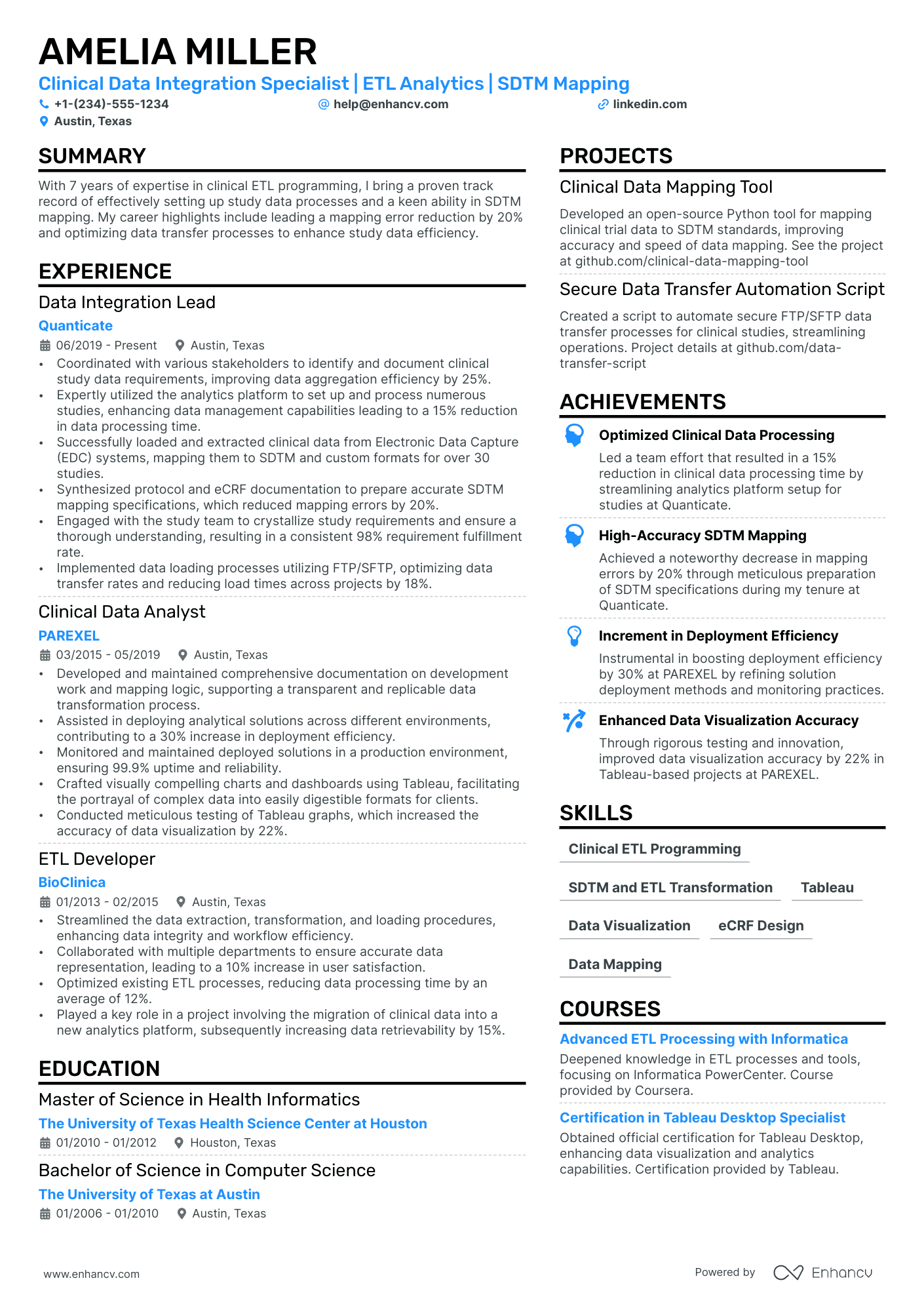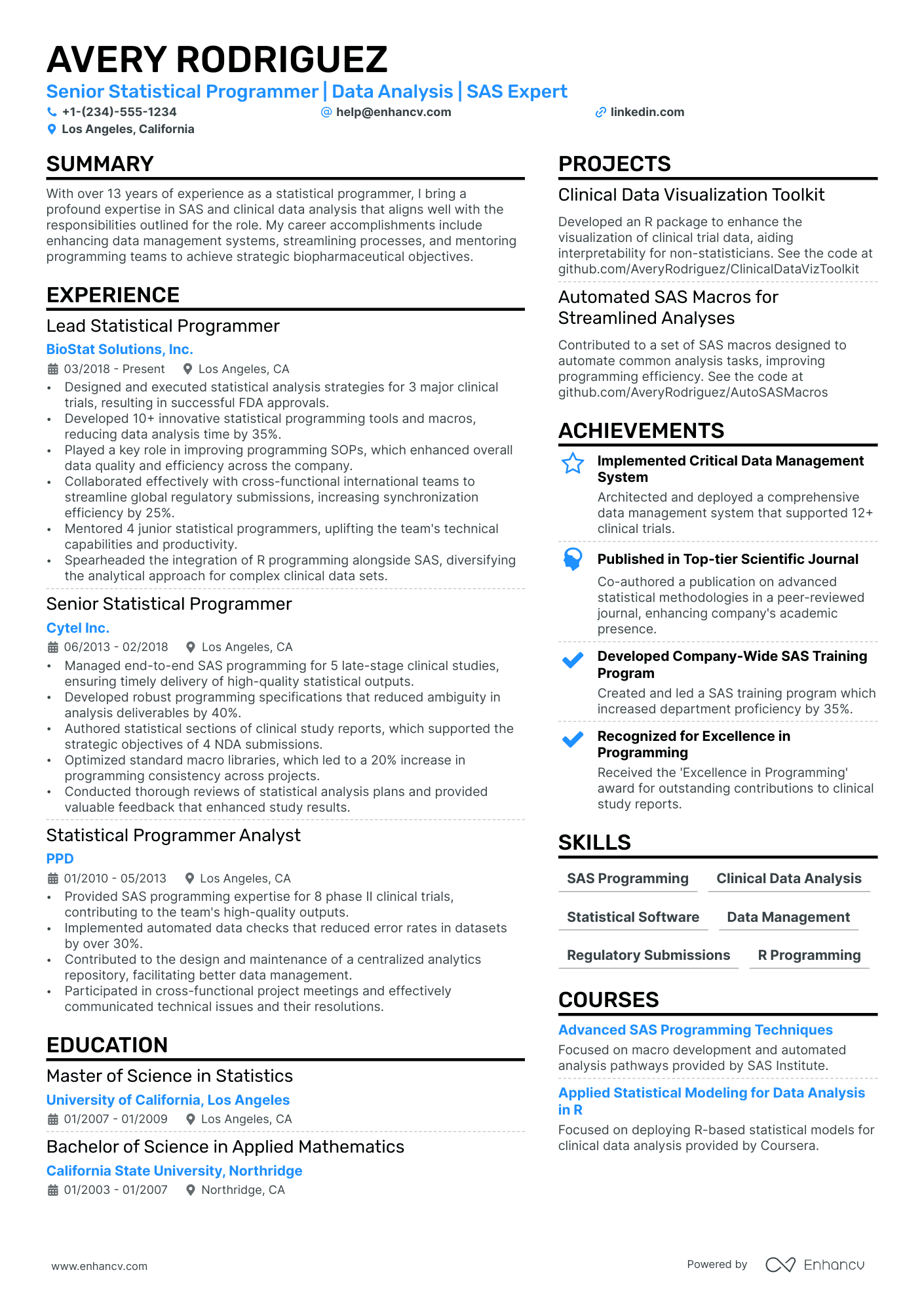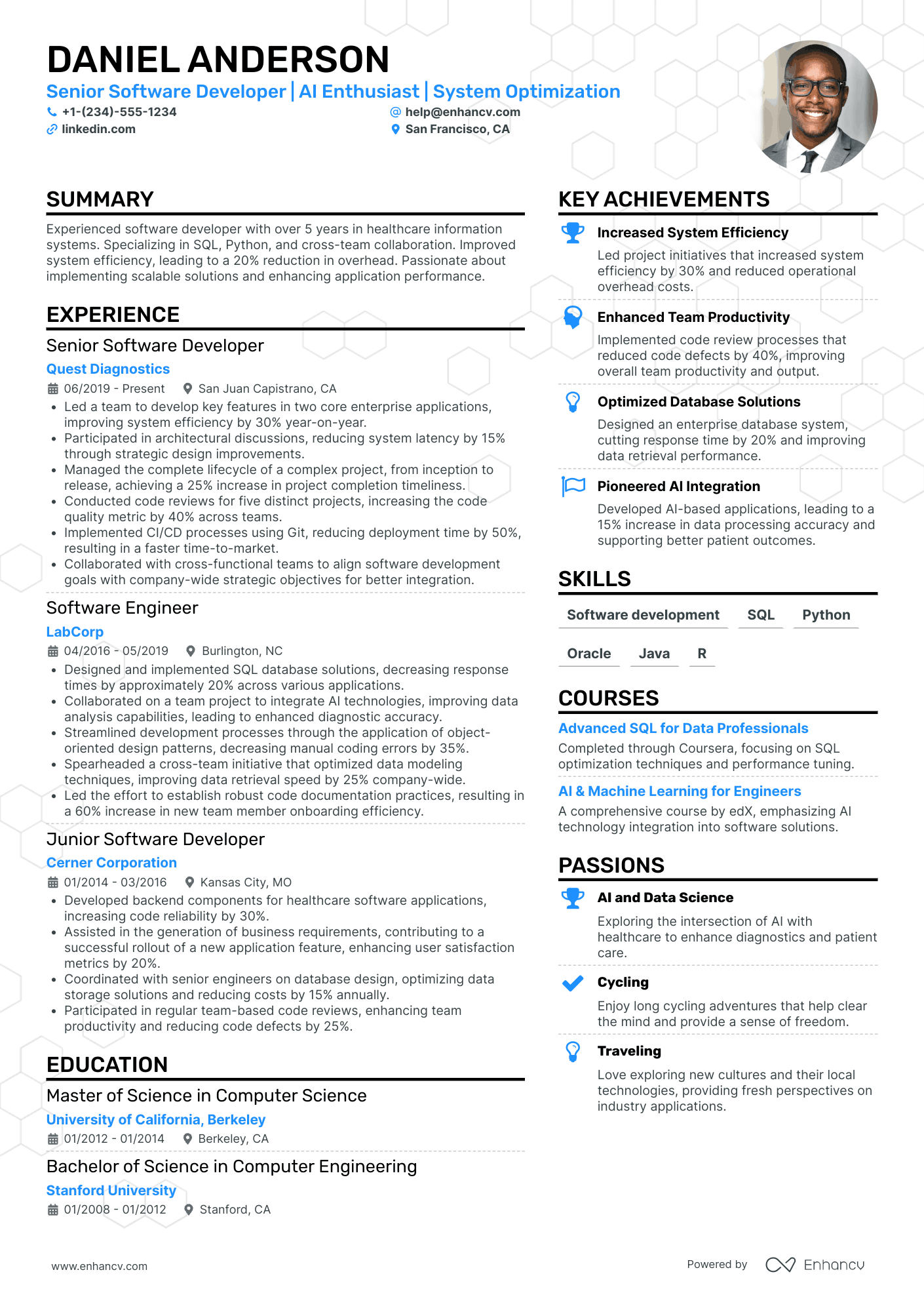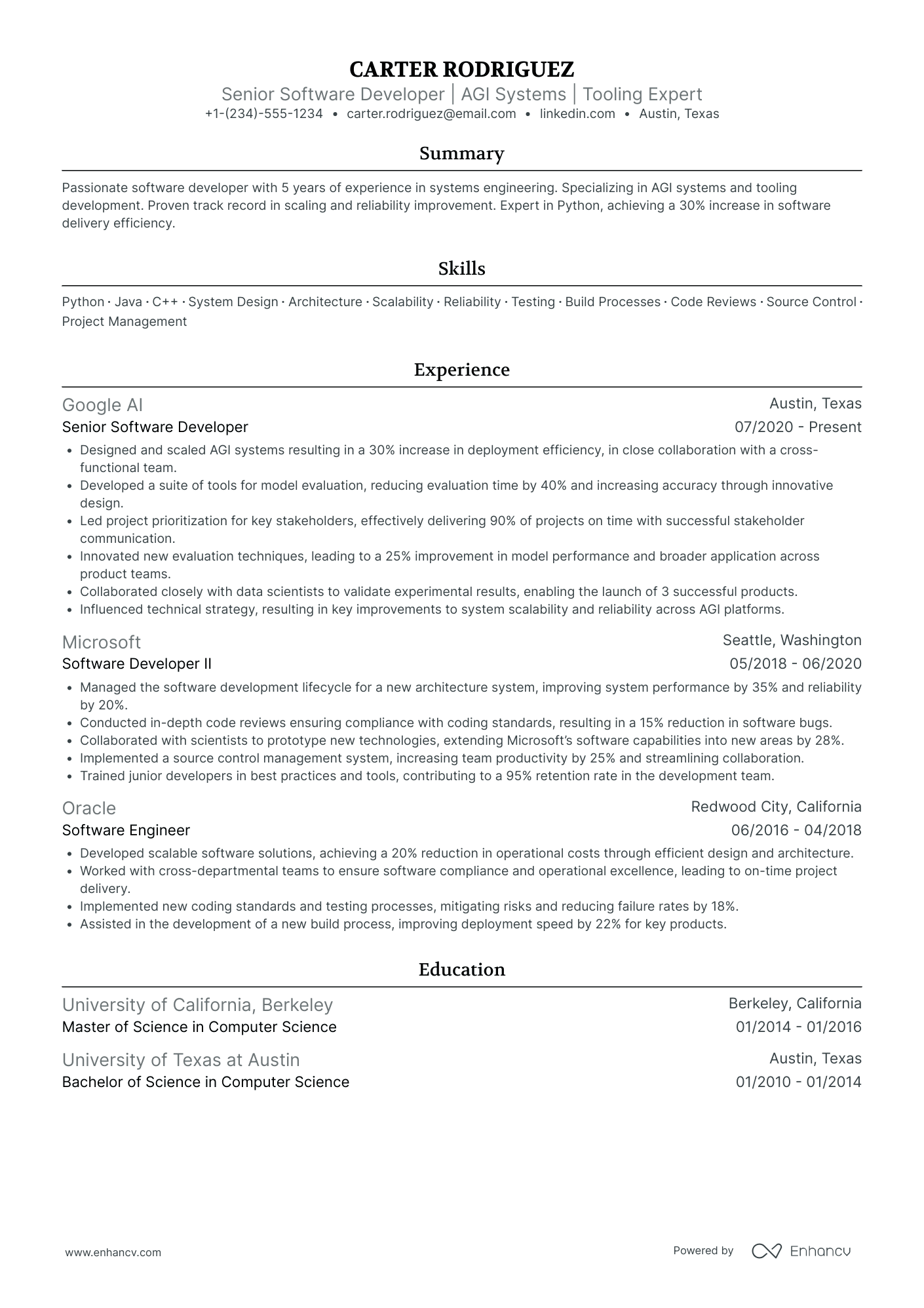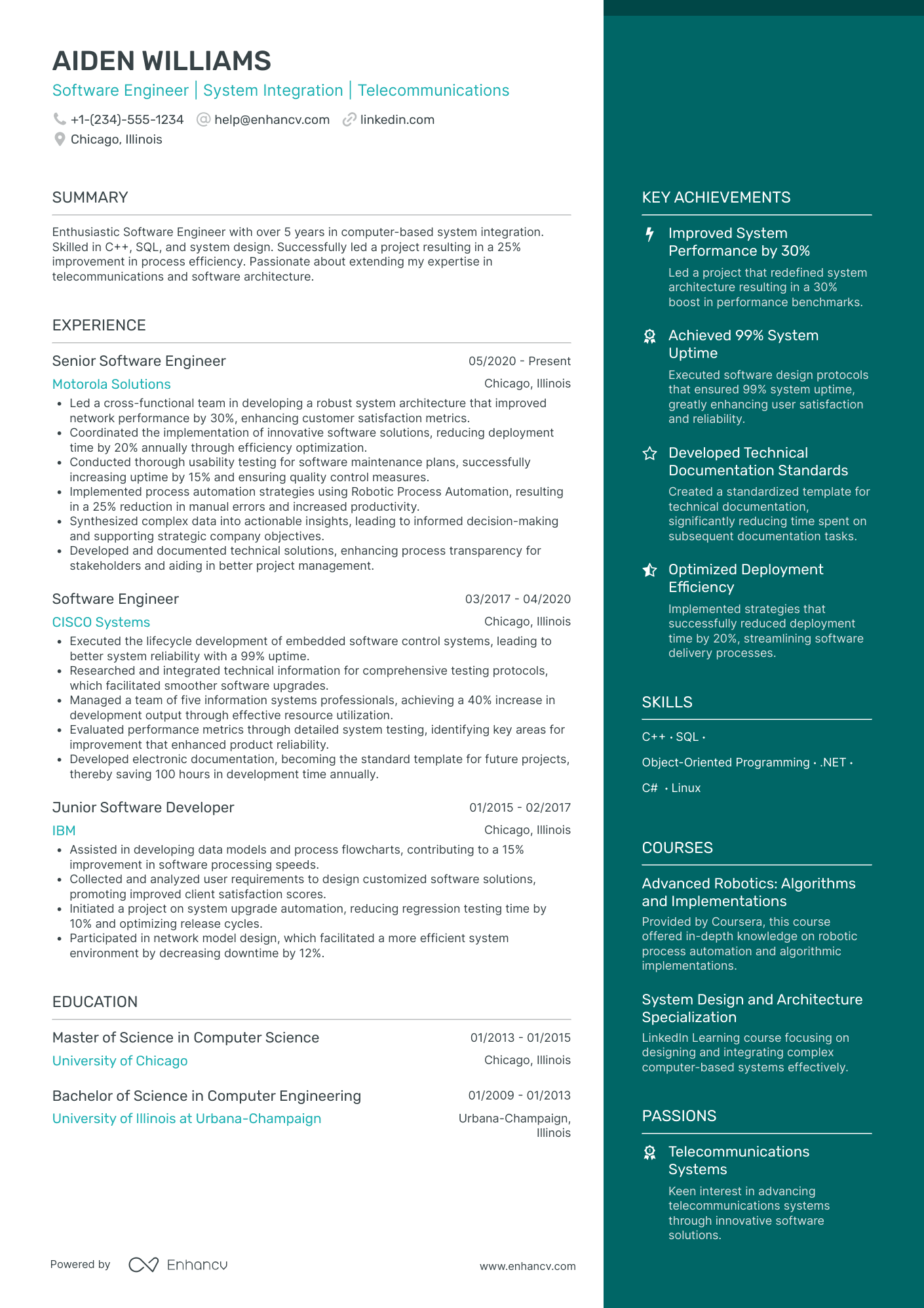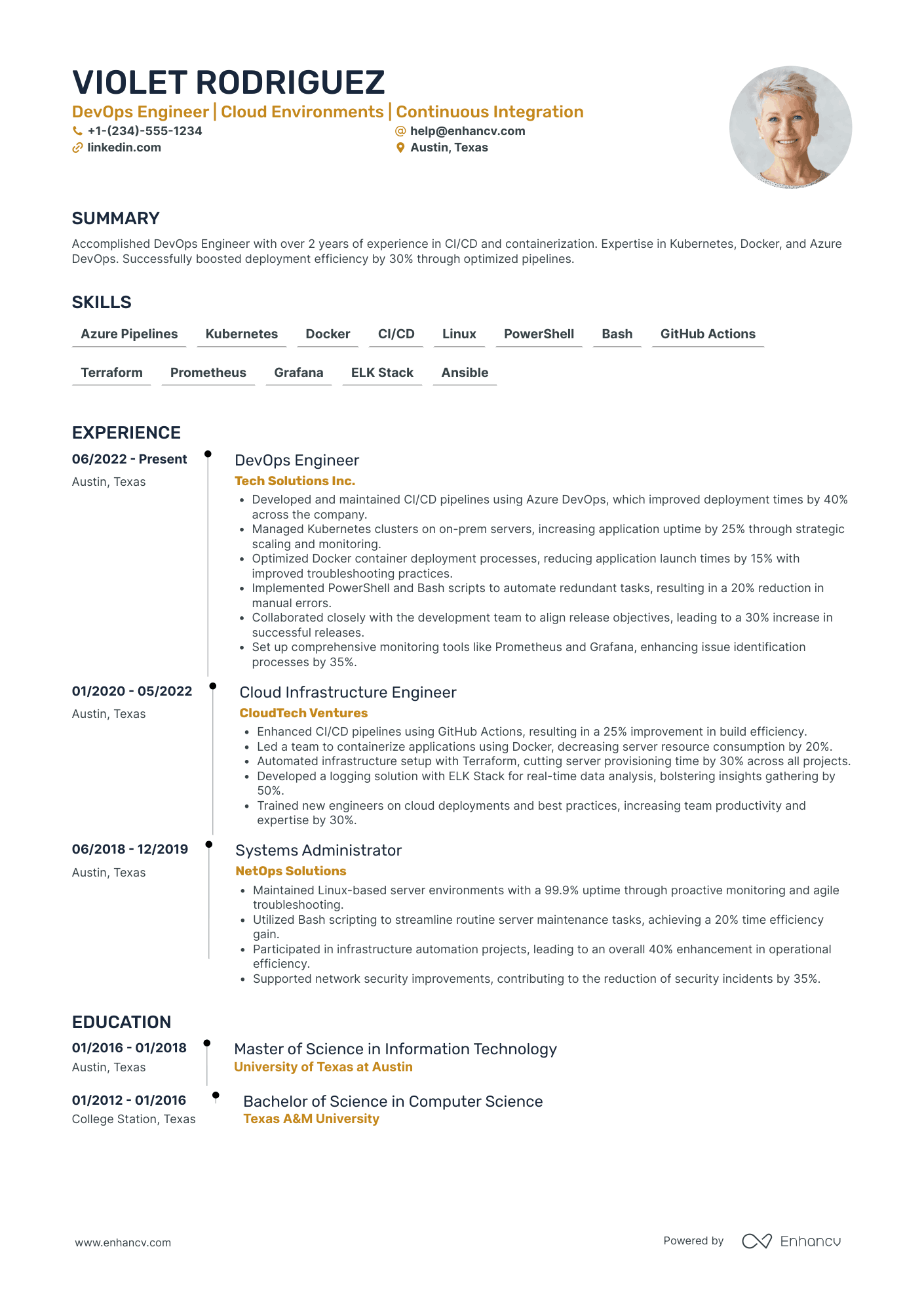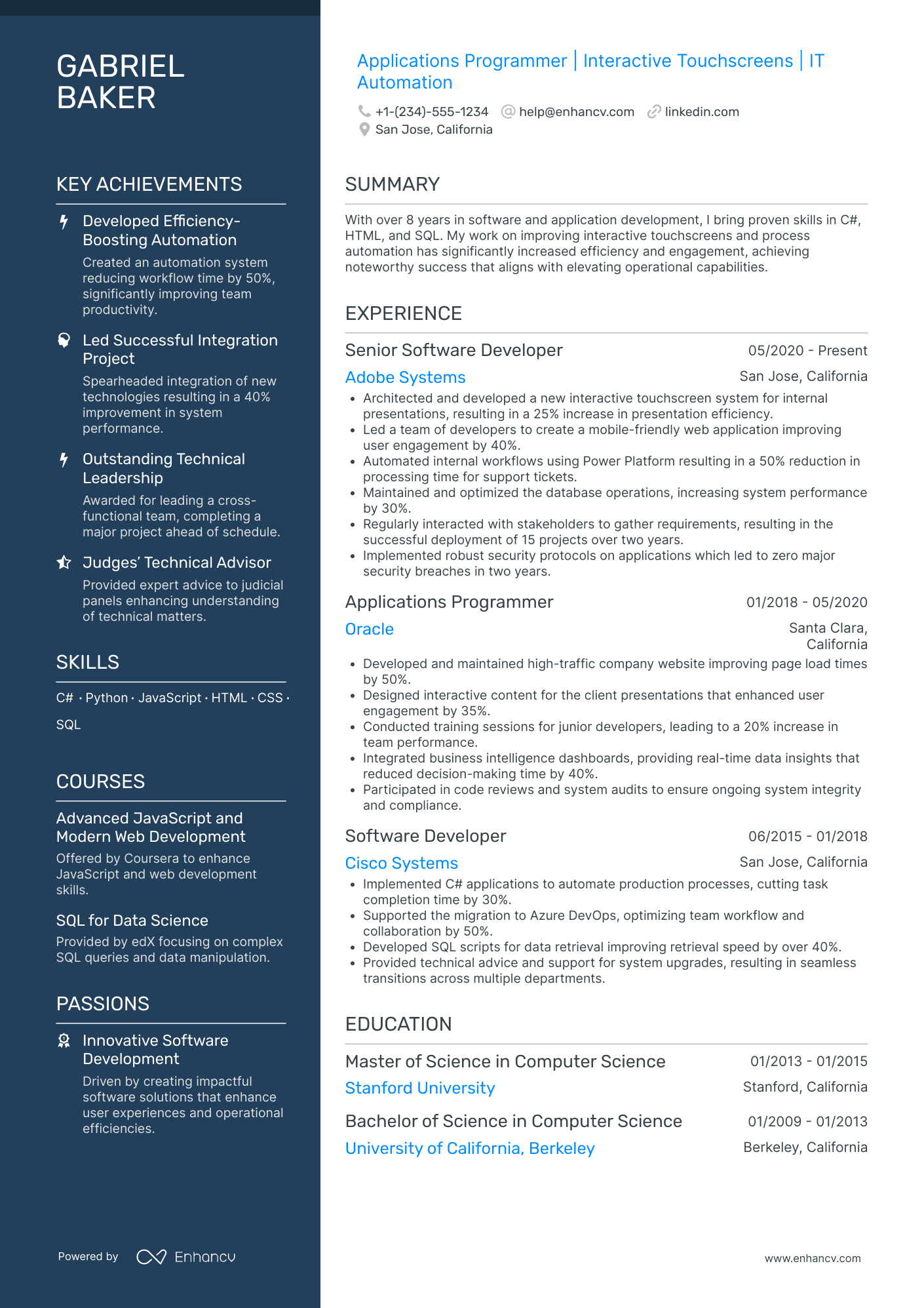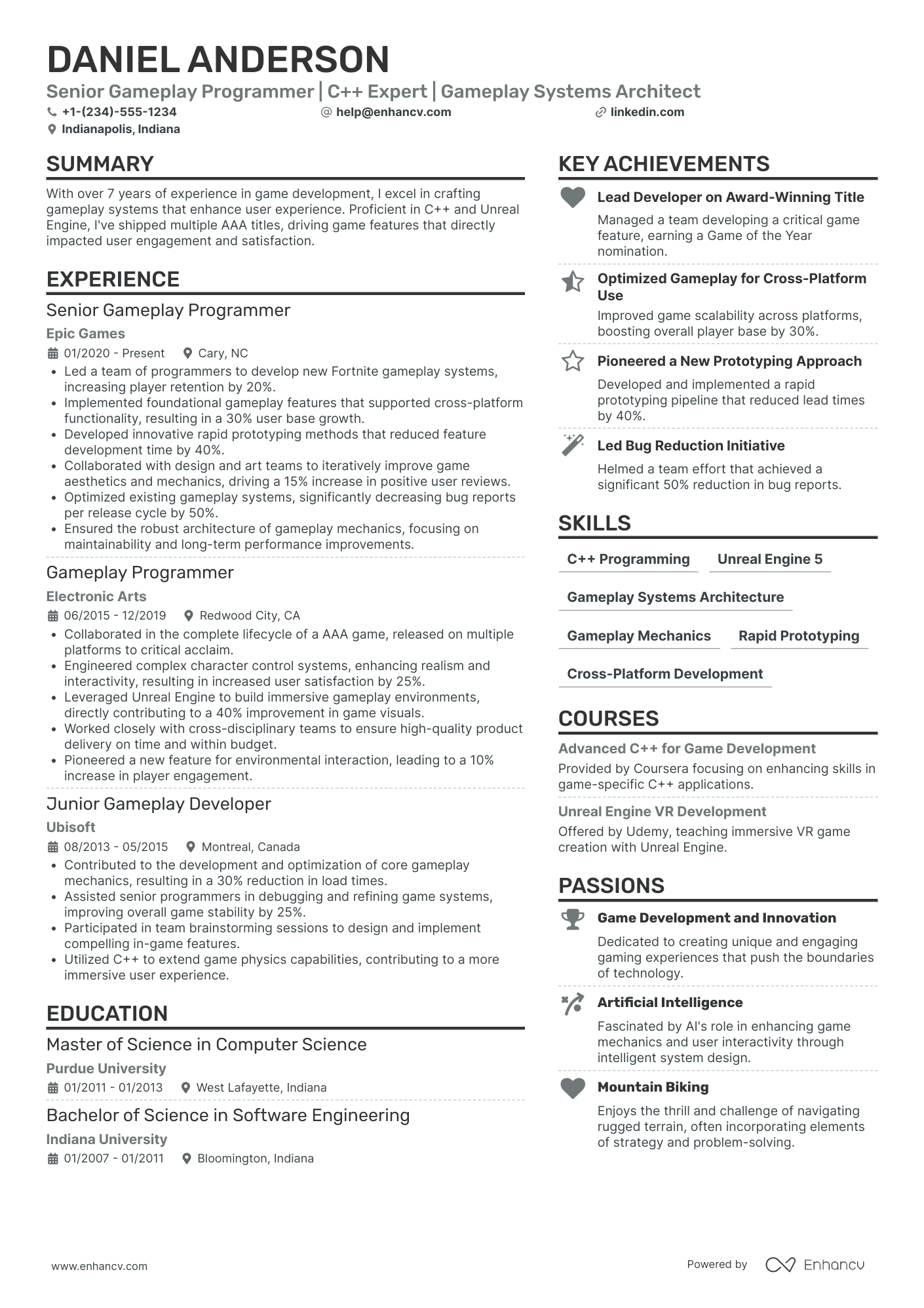Ever watched a movie where a programmer types furiously on a keyboard, and—bam!—they’ve hacked into a super-secret system in seconds? If only real-life coding were that glamorous!
In reality, building a programming career takes more than flashy typing and cool computer screens. It’s a mix of creativity, problem-solving, and endless curiosity to turn lines of code into functional, reliable, and sometimes innovative solutions.
If you’re ready to break into the tech world or level up your career, your programmer resume is where it all begins. This guide is packed with inspiring tips to help you show your skills, stand out to employers, and land your dream tech role–without the Hollywood drama.
Key takeaways
- Programming careers require more than just technical skills–creativity and problem-solving are essential.
- Your resume should be structured, practical, and clear, mirroring the precision needed in coding.
- Prioritize a hybrid resume format, highlighting industry-specific skills followed by work experience to showcase both expertise and progression.
- Use a concise, one-page layout with clean fonts and subtle colors to enhance readability and ATS compatibility.
- Quantify your accomplishments to display impact—mention efficiency improvements, reduced errors, and system optimization metrics.
- Include additional sections, such as open-source contributions or tech community service, to stand out further.
Let’s review a resume template that exemplifies these principles in action.
Programmer resume sample
Check out John’s resume. Copy it and insert your own information or create a brand new one using the Enhancv resume builder.
John Nevermore
Computer Programmer
(415) 555-01xx | john.nevermore@enhancv.com | @LinkedIn | San Francisco, CA
Summary
Experienced Computer Programmer with a robust background in designing, coding, and updating software solutions across multiple operating systems. Skilled in automating tasks, optimizing code, and collaborating with teams to enhance software efficiency. Known for meticulous code reviews, proactive problem-solving, and commitment to high system performance.
Core Competencies
- Software development & multi-system programming – Proficient in writing scalable, maintainable code across multiple systems, tailoring applications to specific client and business needs.
- System automation & optimization – Proven ability to develop and implement automation tools, reducing project timelines and increasing workflow efficiency.
- Code review & quality assurance – Consistently conduct thorough code reviews, ensuring clean, optimized, and effective coding practices.
- Agile project management – Adept at managing projects from inception through deployment, utilizing Agile and Scrum methodologies to drive team productivity and project success.
Professional Experience
Systems Programmer
Digital Innovations, San Francisco, CA
June 2017 – Present
- Enhanced system performance: Led systematic reviews and continuous improvements of software systems, reducing downtime and increasing efficiency.
- Codebase management: Authored and maintained codebases across multiple platforms, successfully integrating advanced features and ensuring reliability.
- Automation & innovation: Created automation tools, reducing coding time by 30%, streamlining processes, and showcasing technical innovation.
- Project leadership: Oversaw complete software development lifecycles, from requirements analysis through to deployment, highlighting strong project management and leadership capabilities.
Junior Programmer
TechGrowth Solutions, San Francisco, CA
March 2015 – May 2017
- Adaptable coding: Developed scalable, efficient software solutions tailored to diverse client requirements across multiple industries.
- Code library utilization: Leveraged code libraries to enhance efficiency and optimize coding processes.
- Team collaboration: Worked closely with developers to design and deploy custom software solutions, enhancing inter-departmental cooperation.
Education
Bachelor of Science in Computer Science
University of California, Berkeley
Graduated: 2014
Certifications
- Certified Software Development Professional (CSDP)
- Oracle Certified Associate, Java SE 8 Programmer
Technical Skills
- Programming languages: Java, Python, C++
- Frameworks & tools: Agile, Scrum
- Specialized skills: System Automation, Code Review, Multi-System Programming
- Languages spoken: English (Fluent), Spanish (Intermediate)
Much like selecting the appropriate programming language for a specific task, choosing the right resume format allows you to highlight your strengths effectively. Let’s explore the options below.
How to format a programmer resume
Your programming resume should be utilitarian–structured, practical, and effective. Just like in writing code, aim for elegant solutions that work. A simple, professional template will ensure readability. A clean design will reflect efficiency and accuracy—key traits for a programmer who manages codebases, debugs applications, and develops algorithms daily.
Top resume sections
Outline your document using these essential resume sections:
- Contact Information
- Career Summary or Objective
- Technical Skills
- Work Experience
- Education and Certifications
Each component provides an opportunity to illustrate your programming skills and project accomplishments, which we’ll cover in more detail further down in the article.
Resume format
Choose a hybrid resume to simultaneously outline your career progression and the technical skills that make you an effective programmer. This format lets you put your key hard skills upfront, followed by reverse-chronological work experience where you can detail specific projects and achievements.
Resume design
Here are some tips to make your resume look polished:
- Aim for a one-page resume to exhibit your most impactful work. Impress recruiters with the ability to summarize complex projects.
- If you have extensive experience or a variety of skills and projects, a two-column layout can help present them without crowding the page.
- Use a one-inch margin to prevent a cluttered look. Use accent colors like dark blue, gray, or green, which add a professional touch without drawing focus away from the content. Pair them with a legible font, like Rubik or Calibri.
- Add lines or dividers between sections to reinforce your methodical approach.
Resume header
Place your contact information in a neat header at the top. Recruiters expect precision, so verify every detail for accuracy.
Include:
- Name, job title, phone number, and email address.
- A portfolio, GitHub link, or any links to repositories, code samples, or projects to demonstrate your coding skills and problem-solving approach.
- A short headline to emphasize your expertise, such as “Full-Stack Developer Specializing in JavaScript” or “Data Engineer with a Focus on Scalable Solutions.”
- A photo only upon request, as it’s not generally needed for programming positions.
Different markets have specific resume styles – a Canadian resume, for instance, may require a different approach.
PRO TIP
Forget stressing over fonts, colors, or columns—ATS (Applicant Tracking Systems) don’t stress over design details like that. What really matters? Speaking the language of the job description. Clarity and relevance are what make your skills pop on screen. Focus on aligning your experience with what the job’s looking for, and you’ll keep both ATS and HR on your side.
File formatting
Save your resume with a clear, professional filename: “Jane_Smith_GameDeveloper”. Save it as a PDF unless the job listing specifies otherwise to ensure your resume layout remains consistent.
Finally, carefully proofread your resume to avoid typos. You know how frustrating it is to spend an afternoon looking for the reason your code broke and finding out it’s just a column missing somewhere? Your resume should be spotless.
You can ensure that using our free AI checker:
Is your resume good enough?
Drop your resume here or choose a file. PDF & DOCX only. Max 2MB file size.
Now, let’s clearly detail your professional experiences as you would in a clean code function.
How to write your programmer resume experience
The experience section is arguably the most important part of a programmer’s resume. It’s where you prove how you’ve put your skills to work. Since many programming interviews involve practical problem-solving tasks, showing real projects on your resume helps interviewers envision your potential.
When detailing your experience, go beyond listing tasks–focus on results and impact. Rather than saying you “developed and maintained web applications,” highlight achievements like “optimized a high-traffic application, reducing load times by 35%." Emphasize your unique approach when dealing with problems, and how you involve creative thinking into the solutions.
You might not think that programmers are artists, but programming is an extremely creative profession. It’s logic-based creativity.
John Romero, video game developer
Here are the elements you should include in your experience entry:
- Companies, your roles, and the time you spent in each.
- Core responsibilities, such as programming-specific tasks and projects.
- Software, languages, and frameworks you used.
- Measurable achievements.
- Key projects, focusing on problem-solving and outcomes.
Let’s have a look at a real job posting. We’ve highlighted the parts we’ll target in an example experience section below.
CNC Programmer (Starlink)
Position Overview
The CNC Programmer role here at SpaceX is expected to have a comprehensive understanding of all CNC machining and programming operations. This role is tasked with working in close concert with machinists, leads, engineering teams, and machining operations management to increase productivity and optimizing machining programs and procedures. The CNC programmer will be supporting our efforts in Starlink Product with an emphasis in tool/die application. The ideal candidate will be comfortable with complex surfacing, contours, and graphite electrode programming.
Responsibilities
- Use of NX or MasterCam CAD/CAM/CAE program to program CNC parts.
- Vericut NC files as well as maintain revision control on programs and setup sheets.
- Knowledgeable of carbide tools and adjusting speed and feed parameters for maximum tool life.
- Makes or offers suggestions on drawing changes to improve manufacturability.
- Machine fixture tooling as directed by process sheets.
- Machine set up and operation.
- Meets expectations for productivity and production goals.
- Constantly keeps products moving and alerting management when production is inhibited.
- Provides consistent ideas for process improvements.
Basic Qualifications
- High school diploma or equivalency certificate.
- 3+ years of CNC programming experience (including NX).
- Experience with graphite electrode programming.
Preferred Skills and Experience
- 5+ years of CNC programming experience (including NX).
- Experience with programming and operating multi-axis mill and lathe CNC machines.
- Experience working with tool & die applications with complex surfacing and contours.
Why tailoring your experience matters
Think of your resume like a sleek, new website: you want the user experience to be seamless, guiding hiring managers directly to the information they need. Just as clutter and irrelevant content ruin a website’s appeal, too much or unrelated detail on your resume distracts from what truly matters.
So, tailor your resume to the role, including only relevant information and incorporating keywords from the job description. It’ll influence recruiters to see you as a great fit.
Here’s an example:
- •Programmed and optimized CNC parts using NX CAD/CAM for a range of aviation components, achieving a 20% increase in productivity over two years.
- •Managed and implemented Vericut NC file revisions and setup sheets, reducing programming errors by 15%.
- •Developed and adjusted machining processes for carbide tools, extending tool life by 30% on critical components.
- •Spearheaded the programming and operation of multi-axis mill and lathe CNC machines, increasing operational efficiency by 25%.
- •Innovated design changes to improve manufacturability, which were adopted across several major projects.
- •Fabricated complex tooling and fixtures as per process sheets, improving setup speed by 20% and overall production timelines.
This entry effectively matches the SpaceX CNC Programmer role by emphasizing the candidate’s proficiency with NX CAD/CAM and Vericut NC. The quantifiable achievementsdemonstrate the candidate’s significant impact on enhancing operational efficiencies and optimizing machining processes.
Speaking of quantifying accomplishments, let’s look at the benefits of this strategy.
How to quantify your experience on a resume
As a programmer, you know numbers tell the story. Quantifying your achievements isn’t just about showing off—it’s about letting recruiters see the real value you bring. From higher efficiency to reduced errors, metrics make it clear how your skills can directly benefit their business.
Like so:
- Spotlight the number of programming languages you’ve mastered to showcase your adaptability.
- Share the percentage increase in efficiency your coding solutions have delivered.
- Specify the downtime you’ve slashed on systems, outlining your impact on productivity.
- Include figures on error rates you’ve reduced through debugging for smoother operations.
- Quantify the speed boost in software processing times achieved through your programming.
New to the field? Let’s leverage other aspects of your background effectively.
How do i write an entry-level programmer resume?
Breaking into programming without formal job experience might feel challenging but plenty of companies are open to hiring and training motivated newcomers. Your resume can still make a strong impression by underlining academic achievements, personal projects, and any coding competitions you’ve joined.
Here’s what to include in your junior programmer resume:
- Relevant coursework, especially if you studied computer science, mathematics, or engineering. If you completed specific projects or programming assignments, highlight those as accomplishments under each subject.
- Personal coding projects—these show initiative and hands-on learning.
- Participation in any coding challenges or hackathons, include these to illustrate your problem-solving skills and competitive experience.
- Specific programming languages, frameworks, and tools you’re familiar with.
- A well-maintained GitHub profile or online portfolio lets recruiters review your code directly. Ensure projects are organized, with clear documentation.
Use a functional resume, which favors skills over experience, to display this information engagingly.
An entry-level resume works best when paired with a strong resume objective—a statement that convinces hiring managers you’re perfect for the job in under three sentences. Avoid vague statements like “Looking for any programming job” or simply stating “to grow in tech.”
Let’s see a good example:
Technical know-how isn’t the only way to shine. Let’s review a well-rounded skill set for a programmer.
Programmer resume skills
There’s a common myth that programmers aren’t great communicators. In reality, strong people skills are essential for any programming role, whether it’s working across teams or communicating technical concepts. So, when building out your skills section, strike a balance between your technical and interpersonal strengths.
In this component, include hard skills, such as measurable abilities like expertise with specific software and tools. Programming languages are among your most valuable assets, so outline them in a separate section using the language component in our builder. That way, you can show your proficiency clearly.
Best hard skills for your programmer resume
- JavaScript
- Python
- Java
- C++
- C#
- PHP
- Swift
- Ruby
- R
- Go
- TypeScript
- Kotlin
- Rust
- MATLAB
- SQL
- Ruby on Rails
- .NET
- Node.js
- Angular
- React.js
Show recruiters soft skills are an essential part of your arsenal. Review the list we provided below and think of instances that you used these abilities to handle a specific situation. Then, incorporate the examples into your experience section for the best visibility and context.
Best soft skills for your programmer resume
- Problem-solving
- Critical thinking
- Creativity
- Communication
- Teamwork
- Attention to detail
- Time management
- Open-mindedness
- Resilience
- Negotiation
- Decision making
- Leadership
- Self-motivation
- Project management
- Emotional intelligence
- Patience
- Assertiveness
- Flexibility
- Empathy
PRO TIP
Depending on the industry, you can show you bring creativity and humor to problem-solving. For example, you can list rubber duck debugging—explaining code to a rubber duck to catch bugs—as a skill that demonstrates your patience, clarity, and quirky problem-solving approach. After all, if a duck gets it, anyone can!
Now, shift your focus to education and certifications, a powerful feature on your resume.
How to list your education and certifications on your resume
Formal education remains a cornerstone for programmers, providing a foundational understanding of theoretical principles that certifications alone may not cover. A degree in computer science or informatics equips candidates with a broad understanding of software development, algorithms, and systems operations, critical for programming roles.
When structuring the education section of your resume, it should be clear and concise, so make sure you:
- Specify degree type, such as Bachelor of Science, and major, such as Computer Science.
- Name the university/college for credibility.
- Include graduation date for recency.
- For recent grads/limited experience:
- List relevant coursework.
- Include GPA to align with job requirements.
Let’s see a sample education entry tailored to the job posting we discussed:
- •Coursework included Software Development, Algorithms, and Systems Programming, complementing advanced CNC programming capabilities.
- •Focused coursework on advanced CNC machine programming, CAD/CAM software utilization, and precision machining techniques.
- The section underscores coursework directly applicable to CNC programming and complex software development, aligning with the technical demands of the SpaceX position.
- It presents a clear, chronological educational path from a Bachelor’s in Computer Science to an Associate degree in CNC Programming, illustrating a strategic buildup of expertise.
- Each entry emphasizes how the education contributes specifically to the candidate’s capabilities in the job role, linking academic achievements to practical, job-related skills.
Programmer certifications
Certifications are a crucial component of a programming resume, as they demonstrate a practical application of theoretical skills and directly address specific employers’ needs. They often carry more significance than formal education, showing a commitment to staying current with industry standards and technologies.
So, consider adding relevant certificates to your application.
Take a peek at our suggestions:
Best certifications for your programmer resume
Next, let’s create a compelling resume summary that captures your unique professional narrative.
How to write your programmer resume summary
A good resume summary is placed at the top of your resume, considered the prime real estate of your application. Why? Well, it’s what recruiters tend to look at first. That’s why you need to make it compelling. Think of it as a distilled version of your experience, skills, and goals. Use three to five sentences to tell the unique story of your journey as a programmer.
Focus on your technical expertise, problem-solving abilities, and passion for developing innovative software. Your resume profile should show what sets you apart and how you can contribute to the success of your potential employer.
Let’s look at a well-written example targeting the job ad above:
This summary effectively displays the candidate’s relevant technical skills and experience, aligning perfectly with SpaceX’s CNC Programmer role requirements. It shines a light on their commitment to improving production processes as well as their passion for contributing to pioneering space technology projects.
Exploring additional sections can give you an edge and show your full potential, much like adding advanced features to a software application.
Optimize your resume summary and objective for ATS
Drop your resume here or choose a file.
PDF & DOCX only. Max 2MB file size.
Additional sections for a programmer resume
Being a computer programmer might seem like a job lacking creativity to outsiders. However, your resume should captivate not just with technical prowess but also through personal touches that spotlight your unique contributions.
Here are some specialized sections to consider that will help your resume stand out:
- Describe personal or academic projects, detailing technologies used, project impact, and skills demonstrated.
- Highlight any tech community service, like teaching coding, volunteering for non-profits, or organizing meetups, to show commitment to using skills for a positive impact.
- List any relevant articles you’ve published, including titles, publications, and dates, to demonstrate industry expertise.
- Mention memberships in professional organizations and participation in conferences or workshops as part of your professional growth.
- Outline contributions to open-source projects, specifying your role (e.g., code submissions, bug fixes) to showcase collaboration and initiative.
In conclusion
A well-crafted programming resume is like a binary code sequence—every detail is precise, intentional, and aligned to translate your skills into a clear message that connects you with your next opportunity in tech.
Programmer resume examples
By Experience
By Role
